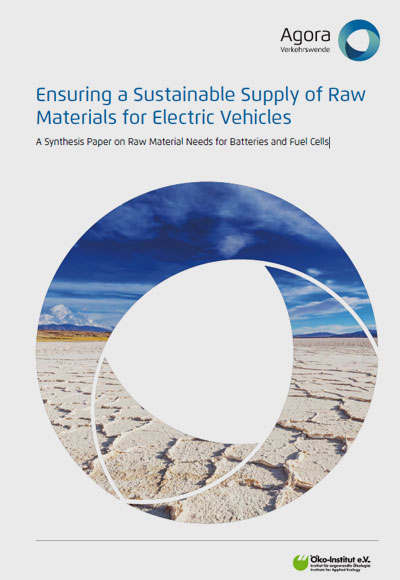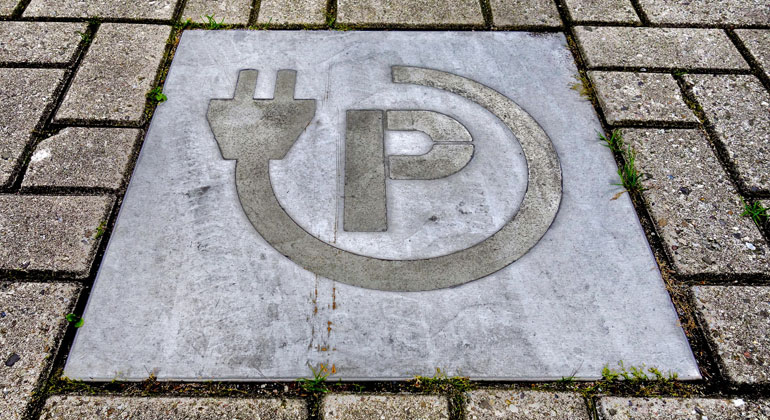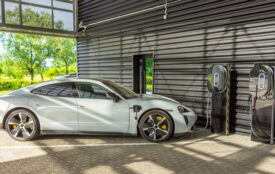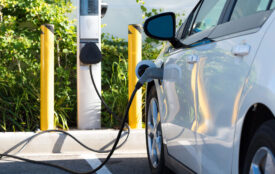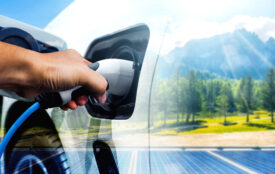Strategies to Ensure Availability of Key Commodities Required for Success of Electric Vehicles
Initiatives are required on the part of the public and private sectors in order to ensure the supply of raw materials needed to manufacture electric vehicles.
Indeed, policymakers and business leaders must devote increased attention to the issue raw material supplies in order to prevent temporary supply bottlenecks or environmental or social problems in supply chains from impairing the adoption of electric vehicles. This is a key finding of a study conducted by the Öko-Institut on behalf of the Berlin-based think tank Agora Verkehrswende.
While key commodities are available in sufficient quantities to cover demand in the event of rapid growth in the electric vehicle industry, the study finds, the authors recommend the establishment of an “Electric Vehicle Commodities Radar” as well as a “Battery Technology Research Offensive” in order to increase material efficiency and develop substitutes for critical commodities.
“The supply of raw materials is not a potential show stopper for the rise of electric vehicles, but material availability should not be taken for granted,” says Christian Hochfeld, Director of Agora Verkehrswende.
Electric vehicles are a key technology for decarbonising the transport sector, as they are highly efficient and climate neutral when powered with wind and solar energy. The widespread adoption of electric vehicles would dramatically reduce demand for fossil fuels and could eventually eliminate the need for petroleum imports. However, electric vehicle batteries require a range of raw materials that have played a marginal role in the manufacture of automobiles to date. Lithium, cobalt and graphite are three such raw materials. Demand for these commodities will increase significantly as electric vehicles achieve higher rates of adoption. According to the study, if ambitious efforts are made to limit global warming to 2 degrees Celsius, then demand for some materials could jump by as much as fifteen times in relation to current demand by all economic sectors.
While known reserves of all raw materials examined by the study are sufficient to cover a robust increase in demand, the authors make a series of recommendations designed to minimise the risk of temporary price jumps or supply bottlenecks.
The reform of the EU Battery Directive is an urgent recommendation of the study. The study argues that the directive should be revised to take electric vehicle batteries into account by adopting recycling quotas for strategically important raw materials. The study additionally calls for the establishment of a global recycling system for lithium-ion batteries; the launch of a research offensive in the area of battery technology; and the development of a system to monitor the supply of raw materials crucial to electric vehicle manufacturing.
“Whenever possible, we should avoid unpleasant surprises by reducing our consumption of primary raw materials,” says Matthias Buchert, Director of the Division of Resources and Transport at the Öko-Institut.
The supply of raw materials is only one part of the equation, however. The study also recommends the development and enforcement of environmental and social standards at each stage in the commodities supply chain. Specifically, the Agora study advocates the establishment of a Global Industrial Alliance for Sustainable Lithium. The goal of this initiative would be to establish criteria for sustainable mining techniques while also encouraging the international sharing of best practice.
The mining of cobalt in the Democratic Republic of Congo is one prominent problem area. Half of the world’s cobalt is mined in this country, much of it by miners labouring in poor conditions while using environmentally damaging artisanal methods. In order to tackle this problem and encourage the adoption of sustainability standards, the study also recommends that companies adopt a Due Diligence Codex for Cobalt. Such due diligence practices have previously proven beneficial for minimising the risks posed by other conflict minerals, such as tin, tungsten and gold. “Ambitious environmental and social standards are important so that electric vehicles are not tarnished with a negative reputation as a technology that causes environmental degradation and poor working conditions in other parts of the world,” Hochfeld says.
The study, entitled “Strategies for Ensuring the Availability of Raw Materials to the Electric Vehicle Industry,” can be downloaded free of charge at the link below.
